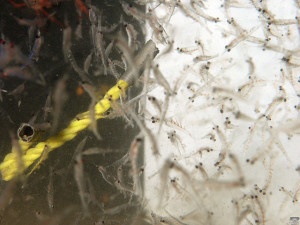We have much more to do and your continued support is needed now more than ever.
Alarming Atlantic Zooplankton Decline Linked to Climate Change

Springtime plankton blooms off the coast of northern New England were well below average this year, leading to the lowest levels ever seen for the tiny organisms that are essential to maintaining balance in the ocean food chain, said Kevin Friedland, a marine scientist with the National Oceanic and Atmospheric Administration.
The absence of the normal surge of plankton in the spring is a concern because that’s when cod and haddock and many other species produce offspring, Friedland said. The spring surge also provides the foundation for normally abundant zooplankton levels that have made waters from the Middle Atlantic to New England productive for centuries.
“The first six months of 2013 can be characterized by new extremes in the physical and biological environment,” Friedland said from his office in Rhode Island. The findings come after temperatures off the Northeast U.S. hit an all-time high in 2012.
I’m representing the National Wildlife Federation today at a news conference in New Bedford, MA, America’s top-grossing fishing port, as Environment America releases a new report on how offshore wind energy can help cut climate-disrupting carbon pollution. The zooplankton decline is a reminder that global warming doesn’t just threaten polar bears – if you’re a commercial or recreational fisherman, if you’re one of the millions of subsistence fishermen who depend on the ocean’s bounty to feed your family, or even if you just love fresh fish & chips, climate change is already hurting you.
Meanwhile, ongoing federal spending cuts imposed by Congress continue to gut funding for scientific research. If global warming collapses the base of the ocean’s food chain, will we even see it coming before it’s already too late?
Take a moment right now to ask your members of Congress to support investments in American-made clean energy.






















